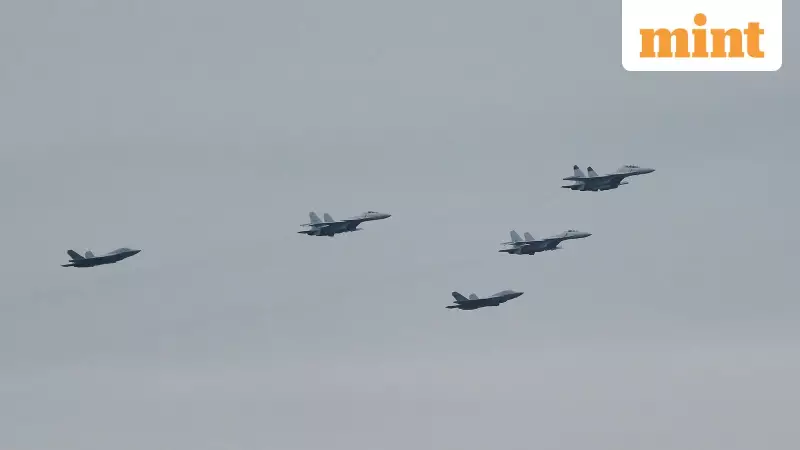
Taiwan's defense ministry reported significant Chinese military activity around its territorial waters on Saturday, detecting 20 People's Liberation Army aircraft and six naval vessels operating in the vicinity. The latest incursion comes amid growing international concern about regional stability in the Taiwan Strait.
Detailed Breakdown of Military Movements
According to the official statement released by Taiwan's Ministry of National Defence, 17 out of the 20 detected aircraft sorties crossed the median line of the Taiwan Strait and entered the country's northern and southwestern Air Defence Identification Zone (ADIZ). The monitoring period covered activities up until 6 am local time on Saturday.
In a post on social media platform X, the defense ministry confirmed: "20 sorties of PLA aircraft and 6 PLAN vessels operating around Taiwan were detected up until 6 a.m. today. 17 out of 20 sorties crossed the median line and entered Taiwan's northern and southwestern ADIZ. We have monitored the situation and responded."
Pattern of Increasing Chinese Military Presence
This incident follows similar Chinese military activity detected just a day earlier on Friday, when Taiwan reported 21 PLA aircraft sorties and three naval vessels operating around its territory. During that incident, 18 of the 21 sorties had similarly crossed the median line and entered the same air defense zones.
The consistent pattern of Chinese military aircraft crossing the unofficial boundary line in the Taiwan Strait represents an escalation in Beijing's pressure campaign against the self-governing island that China claims as part of its territory.
International Response and G7 Position
The growing tensions coincide with the G7 Foreign Ministers meeting under Canada's presidency in Niagara on November 11-12, where participants issued a strong joint statement addressing regional security concerns.
The G7 ministers reaffirmed their commitment to a free and open Indo-Pacific based on the rule of law and expressed strong opposition to any unilateral attempts to change the status quo by force or coercion. The statement specifically mentioned concerns about both the East China Sea and South China Sea regions.
In their communique, the ministers underscored the need for peace and stability across the Taiwan Strait and explicitly opposed "any unilateral attempts to change the status quo, particularly by force or coercion." They also encouraged peaceful dialogue on cross-Strait issues and expressed support for Taiwan's "meaningful participation in appropriate international organisations."
The G7 statement also raised concerns about China's military build-up and nuclear expansion, calling on Beijing to demonstrate stability through "improved transparency" regarding its military capabilities and intentions.
Taiwan's defense authorities have maintained that they are closely monitoring the situation and have taken appropriate response measures to ensure national security amid the increasing Chinese military presence in the region.






